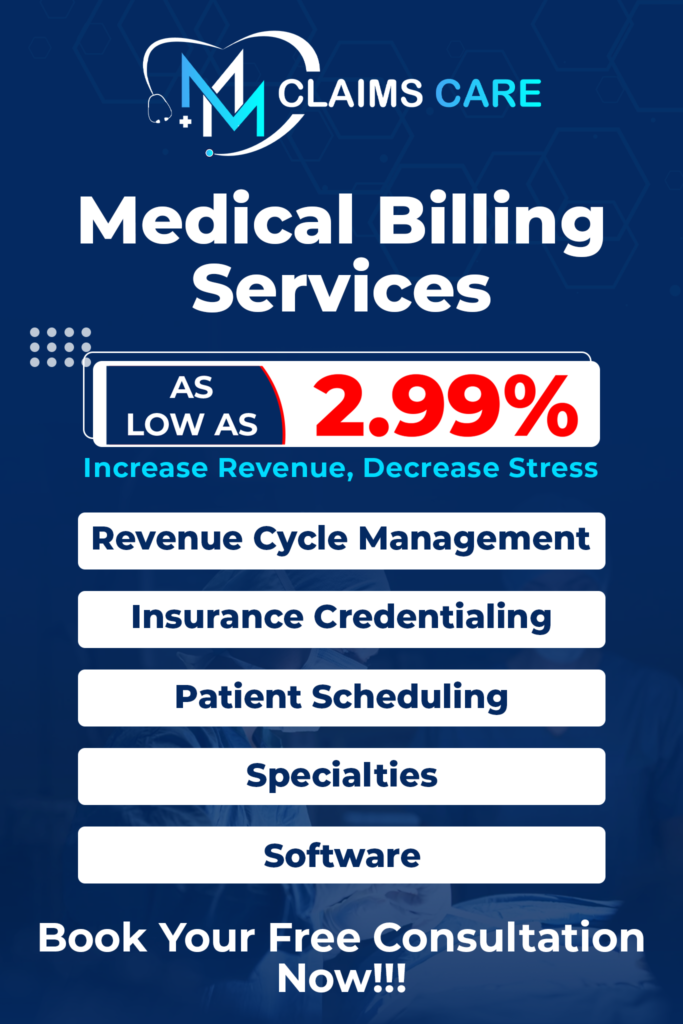Urgent Care Billing Services
Introduction
Urgent care facilities play a vital role in providing immediate medical attention for non-life-threatening conditions. While the focus is on patient care, understanding the billing process for urgent care services is equally important. In this blog, we will explore urgent care billing services, from insurance coverage to common FAQs, to help you navigate this aspect of healthcare.
-
Understanding Urgent Care Services
Urgent Care Services:
Urgent care centers offer medical care for conditions that require immediate attention but are not life-threatening. These include illnesses like the flu, minor injuries, and other non-emergency medical concerns.
Choosing an Urgent Care Center:
When selecting an urgent care center, consider factors like location, hours of operation, and whether they accept your insurance. It’s essential to have this information readily available for billing purposes.
-
Urgent Care Billing Services
1. Insurance Coverage:
Most health insurance plans cover urgent care services. However, the extent of coverage may vary. Check your insurance policy for details on copayments, deductibles, and any preauthorization requirements.
2. Copayments and Deductibles:
You will typically be responsible for a copayment at the time of your urgent care visit. This is a fixed amount you pay for the services received. Deductibles, if applicable, must be met before your insurance coverage begins.
3. In-Network vs. Out-of-Network:
To maximize coverage, visit an urgent care center that is in-network with your insurance provider. Out-of-network services may result in higher costs, so it’s important to understand your plan’s network.
4. Claims Submission:
The urgent care center will submit a claim to your insurance company on your behalf. Ensure that they have accurate information about your insurance coverage to avoid any billing issues.
5. Self-Pay Options:
If you don’t have insurance or prefer not to use it for urgent care services, many centers offer self-pay options. Inquire about the cost upfront to avoid surprises.
Conclusion:
Understanding urgent care billing services is essential for a smooth healthcare experience. By being informed about your insurance coverage, copayments, and other financial aspects, you can focus on receiving the necessary medical attention when you need it most. Don’t hesitate to reach out to your insurance provider or the urgent care center’s billing department if you have any questions or concerns about your bills. Your health and well-being are the top priorities, and knowing how to navigate the financial aspect ensures you get the care you deserve.
FAQs about Urgent Care Billing Services
1. How much is an urgent care copayment typically?
Copayments for urgent care visits can vary depending on your insurance plan. They typically range from $25 to $75 or more per visit. Check your policy for the exact amount.
2. Can I use my health savings account (HSA) or flexible spending account (FSA) for urgent care expenses?
Yes, you can often use your HSA or FSA funds to cover urgent care copayments and related expenses. Check with your plan administrator for guidance.
3. What if I don’t have insurance? How much can I expect to pay for an urgent care visit?
If you’re uninsured, the cost of an urgent care visit can vary widely by location and the services provided. It’s advisable to inquire about pricing with the urgent care center beforehand.
4. Can I visit any urgent care center, or do I need to go to one affiliated with my primary care physician or insurance provider?
In most cases, you can visit any urgent care center of your choice. However, using an in-network center may result in lower out-of-pocket expenses.
5. Do urgent care centers offer financial assistance or payment plans for those who cannot afford their services?
Some urgent care centers offer financial assistance or payment plans for individuals facing financial hardship. It’s best to discuss your situation with the center’s billing department.
6. How long does it take for insurance claims to be processed for urgent care services?
The processing time for insurance claims can vary, but it typically takes a few weeks. It’s essential to review your Explanation of Benefits (EOB) once received to ensure accuracy.







